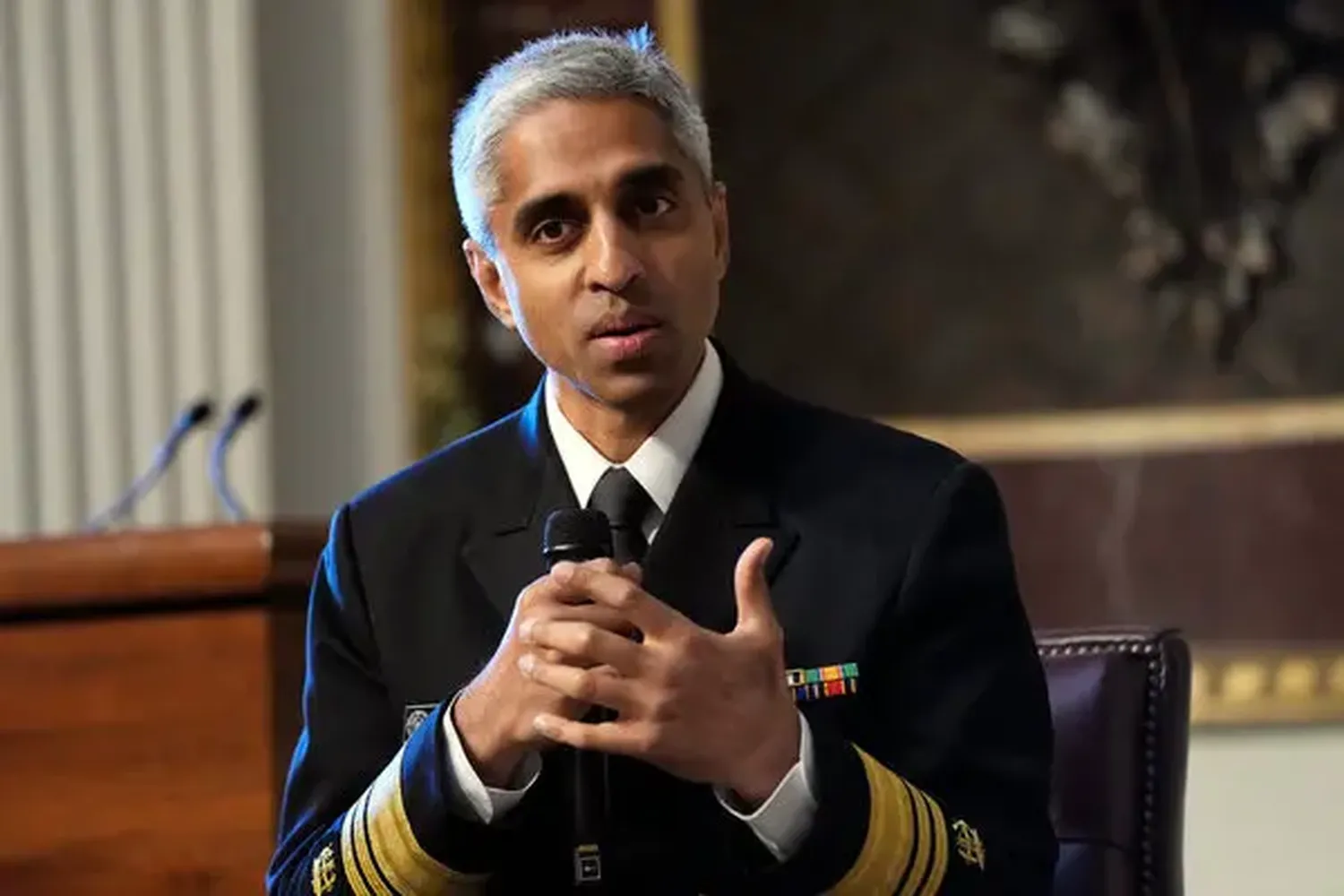Mental Health Crisis
Surgeon General Calls for Warnings on Social Media Platforms
He intends to address the youth mental health crisis, urging Congress to take action.
In a significant move to address the growing mental health crisis among adolescents, U.S. Surgeon General Dr. Vivek Murthy has called for the implementation of warning labels on social media platforms. In an op-ed published in The New York Times on Monday, Dr. Murthy emphasized the urgent need for these labels, drawing parallels to the health warnings on tobacco and alcohol products.
Dr. Murthy's call to action is rooted in mounting evidence linking extended social media use to increased risks of anxiety, depression, and other mental health issues among young people. According to a Pew Research Center survey, nearly 95% of youth aged 13 to 17 reported using social media in 2022, with an average daily usage of 4.8 hours. Adolescents who spend more than three hours on these platforms are at a higher risk of mental health problems, with nearly half reporting negative impacts on their body image.
In his op-ed, Dr. Murthy highlighted the lack of definitive proof that social media is safe for adolescents, stating, "There is no seatbelt for parents to click, no helmet to snap in place, no assurance that trusted experts have investigated and ensured that these platforms are safe for our kids." He argued that warning labels would serve as a constant reminder for parents and adolescents about the potential risks associated with social media use.
The Surgeon General's call for warning labels is not a new stance. In May 2023, Dr. Murthy issued a health advisory regarding the use of social media by youth, labeling it an "urgent public health issue." He acknowledged that while warning labels have been effective in raising awareness and changing behavior in various contexts, they present unique challenges when applied to social media.
Historically, surgeon generals have issued public advisories on a range of topics, from sexual habits during the AIDS crisis to violent video games, obesity, and loneliness. One of the most notable instances was the 1964 surgeon general's report warning about the dangers of smoking, which led to the Federal Cigarette Labeling and Advertising Act of 1965. This act mandated health warnings on cigarette packages and contributed to a significant decline in smoking rates in the U.S.
Dr. Murthy's proposal for social media warning labels has garnered bipartisan support from Senators Marsha Blackburn (R-TN) and Richard Blumenthal (D-CT), who have previously collaborated on legislation to protect children from online threats. However, any surgeon general's warning label would require congressional approval, and as of now, no proposed bills related to this issue are pending in Congress.
In addition to warning labels, Dr. Murthy urged Congress, companies, and the public to collectively address the risks of social media. He suggested that social media companies should share their health data with the public and allow independent safety audits. Schools should establish phone-free social time and classroom learning, and parents should delay granting access to social media until after middle school.
The debate surrounding social media's role in the mental health crisis among children and adolescents is ongoing. In his new book, "The Anxious Generation," social psychologist Jonathan Haidt identifies the 2007 release of the Apple iPhone as a turning point, leading to a surge in suicidal behavior and reports of despair. Other experts argue that while social media usage has coincided with declines in well-being, there is no definitive evidence that one causes the other. They point to factors such as economic hardship, social isolation, racism, school shootings, and the opioid crisis.
Despite the ongoing research, Dr. Murthy's call for a warning label underscores the urgency he feels to address this issue. He emphasized the need for immediate action, drawing parallels to past public health campaigns and the challenges parents face in protecting their children from the influence of social media giants.
In the UK, new regulations under the Online Safety Act are set to come into force in 2025, requiring tech firms to take more action to keep children safe online. Media regulator Ofcom has already set out new rules for tech firms, requiring them to have robust age-checking measures and to steer children away from harmful material. However, parents of children who have died after exposure to harmful online content are pushing for more stringent regulations.
As concerns about the negative effects of social media on mental health continue to mount, Dr. Murthy's proposal represents a significant push for increased government oversight and accountability in the tech industry. By raising awareness about the potential risks and encouraging responsible use of social media, the Surgeon General hopes to promote a healthier digital environment for the next generation.

